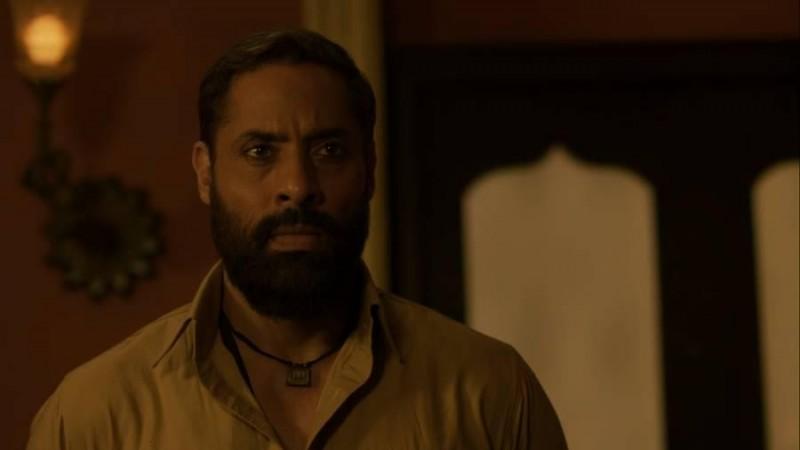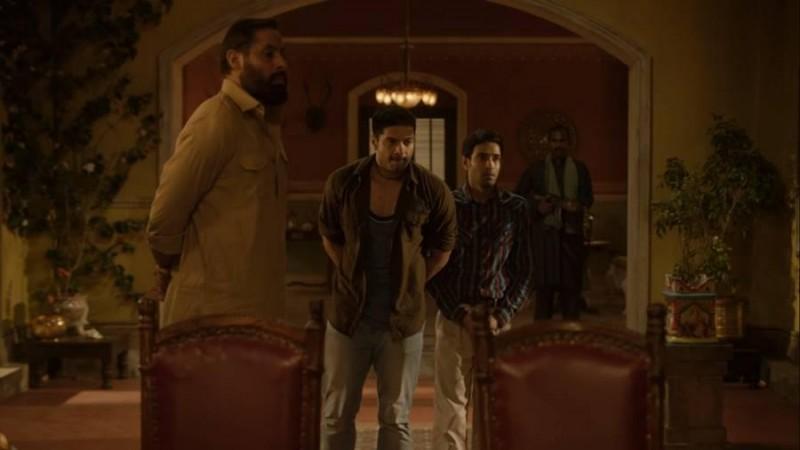SPOILER ALERT: Please do not proceed from here if you have not watched the two seasons of Mirzapur. Or you may scroll down and come face to face with events from various episodes.
In the year 2003, Irrfan's career as an actor in the alternative paradigm of the Hindi film industry was established with Vishal Bhardwaj's directorial, Maqbool. The film was an adaptation of William Shakespeare's play Macbeth. Macbeth was based on a King who became hungry for power when three witches approached him in a dingy field and told him that he will be the future King. The madness had led him to plan a murder where Duncan, the original King who was like a father to Macbeth would be killed. When Macbeth took away Duncan's life, he had committed more than one crime; he committed patricide, regicide and most importantly broke Duncan's trust of being a close friend.

Vishal Bhardwaj and Irrfan with their own aesthetic and creative brilliance finely gave Maqbool an Indian touch. In the Hindi film industry, the name Maqbool became synonymous with that of a traitor. Hence when Maqbool was introduced as the 'wafadar aadmi' (loyal man) of the Tripathis, we did not doubt it, since we were way past the era where a name would still be synonymous to that of a fictional character.
Spatial differences between the master and the servant
When you observe carefully, you will notice that the Akhandana Tripathi and Maqbool maintain a safe distance from each other. Although Tripathi treated him with respect, he never actually treated him like family. A motive he had confessed in the first season of Mirzapur itself while explaining to Munna why he invited Guddu and Bablu to dinner and allowed him to dine with them on the same table. Tripathi always maintained the class divide with Maqbool, and somehow although Maqbool slightly got affected by the slight lack of respect, he never reacted to it as he was more blinded by loyalty.

But Maqbool never maintains much of a physical distance from Bablu and Guddu, whom Tripathi initially wanted to use as bodyguards of Munna. Somewhere when he observed a physical similarity between Guddu and Maqbool, he offered the Pandit brothers, a job they very well knew that they couldn't refuse. To join the Tripathi industry where they sell guns for a living.
Why would Maqbool believe in hearsay of Munna?
Maqbool was silently aware that Munna could never think diplomatically like his father, Akandana Tripathi. He had also worked closely with the Pandit brothers well enough to know that Guddu would not physically harm the Tripathi's or attempt to murder Akhandana. Despite being involved in the smuggling business, the brothers had a certain level of respect for Akhandana for being a wise man, unlike his son.
Maqbool began suspecting the Pandit boys when Munna purposely dropped a verbal hint. Maqbool became skeptical and informed Akhandana accordingly, but didn't it ever occur to him that maybe, just maybe this entire conversation could have been planted?
Maqbool refused to kill his nephew
Despite receiving orders from Akhananda Tripathi of killing his nephew Babar, Maqbool chose to operate differently. He kept Babar alive but unconscious. Although he was loyal, he wasn't exactly a blind follower of orders. Finally, when Munna crossed the line and killed two of his family members, Maqbool decided to stop being a 'wafadar admi'. He picked up his gun and sought revenge, a characteristic which was also observed in Guddu bhaiya, who initially remained extremely loyal to Akhananda.


!['Had denied Housefull franchise as they wanted me to wear a bikini': Tia Bajpai on turning down bold scripts [Exclusive] 'Had denied Housefull franchise as they wanted me to wear a bikini': Tia Bajpai on turning down bold scripts [Exclusive]](https://data1.ibtimes.co.in/en/full/806605/had-denied-housefull-franchise-they-wanted-me-wear-bikini-tia-bajpai-turning-down-bold.png?w=220&h=135&l=50&t=40)



!['Had denied Housefull franchise as they wanted me to wear a bikini': Tia Bajpai on turning down bold scripts [Exclusive]](https://data1.ibtimes.co.in/en/full/806605/had-denied-housefull-franchise-they-wanted-me-wear-bikini-tia-bajpai-turning-down-bold.png?w=220&h=135)


![Nayanthara and Dhanush ignore each other as they attend wedding amid feud over Nayanthara's Netflix documentary row [Watch]](https://data1.ibtimes.co.in/en/full/806599/nayanthara-dhanush-ignore-each-other-they-attend-wedding-amid-feud-over-nayantharas-netflix.jpg?w=220&h=135)